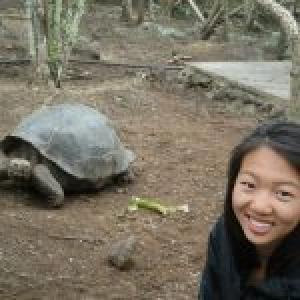Research
Human epithelial surfaces are colonized by hundreds of trillions of commensal microbes representing thousands of unique bacterial species (the human microbiota). Our lab seeks to understand, predict, and manipulate how human microbiota behave over time. We are particularly interested in how these human-associated microbial communities resist and respond to perturbation. Below are several research projects we are pursuing.
Predicting microbiome susceptibility to infection
We are actively collaborating with Regina LaRocque (Massachusetts General Hospital) and Firdausi Qadri (the International Center for Diarrheal Disease and Research, Bangladesh) to longitudinally study cholera infections among the residents of Dhaka, Bangladesh. Using a cohort of families at high risk of cholera transmission, we are studying the microbiota factors affecting individual susceptibility to cholera. We are also developing similar predictive models from nasal microbiomes following viral challenge in collaboration with Geoff Ginsburg’s group at Duke.
Post-infection microbial successions
Through our work on cholera transmission, we have observed that waves of distinct bacterial species colonize human guts in the weeks following diarrheal infection. We are now using a combination of next-generation sequencing and bioreactor design to study these successions and uncover their mechanisms. This work is being performed in collaboration with Marc Deshusses from the Pratt School of Engineering at Duke. Of particular interest are efforts in the lab to reproduce microbial successions in vitro, using simplified microbial communities.
Microbiome network inference and rational probiotic design
We have collected some of the world’s densest time-series of human behavior and commensal microbiota, having tracked these variables on daily time scales for weeks and even months. Now, we are using computational techniques to build dynamical models of how human microbiota behave over time. We are particularly interested in learning predictive models, and ultimately verifying them using experiments in vivo. A long-term goal of this work is the rational design of probiotic therapies for manipulating human microbiota.
Biography
I am an Assistant Professor in Duke University’s Department of Molecular Genetics and Microbiology, Department of Medicine, and Institute for Genome Sciences & Policy.
From the fall of 2010 until 2013, I was a Junior Fellow at Harvard University’s Society of Fellows. There, I worked with Peter Turnbaugh on the human microbiome.
I received my PhD in Computational & Systems Biology from the Massachusetts Institute of Technology in 2010 (where I trained with Eric Alm), and I completed my undergraduate studies in Biomedical Engineering from Columbia University in May of 2005 (where I trained with Chris Wiggins).
My complete academic history is provided in my curriculum vitae
Lab Members
Publications
Representative Publications:
AT Reese, K Lulow, LA David, JP Wright. Plant community and soil conditions individually affect soil microbial community assembly in experimental old-field microcosms. Submitted, 2016
JD Silverman, A Washburne, S Mukherjee, LA David. A phylogenetic transform enhances analysis of compositional microbiota data. eLife, 10.7554/eLife.21887, Feb 2017. [link]
AD Washburne, J Silverman, JW Leff, DJ Bennett, J Darcy, S Mukherjee, N Fierer, LA David. Phylogenetic factorization of microbiome data yields lineage-level associations in microbiome datasets. PeerJ, 5:e2969, Feb 2017. [link]
J Boursier, O Mueller, M Barret, M Machado, L Fizanne, F Araujo-Perez, C Guy, P Seed, J Rawls, LA David, G Hunault, F Oberti, P Cales, AM Diehl. The severity of NAFLD is associated with gut dysbiosis and shift in the metabolic function of the gut microbiota. Hepatology, 63(3):764-775, Mar 2016. [link]
S Wong, WZ Stephens, AR Burns, K Stagaman, LA David, BJM Bohannan, K Guillemin, JF Rawls. Ontogenetic Differences in Dietary Fat Influence Microbiota Assembly in the Zebrafish Gut. mBio, 6(5):e00687-15, Sept 2015. [link]
LA David, A Weil, ET Ryan, SB Calderwood, JB Harris, F Chowdhury, Y Begum, F Qadri, RC LaRocque, PJ Turnbaugh. Gut microbial succession follows acute secretory diarrhea in humans. mBio,6(3):e00381-15, Apr 2015. [URL]
LA David, AC Materna, J Friedman, I Baptista, MC Blackburn, A Perrotta, SE Erdman, EJ Alm. Host lifestyle affects human microbiota on daily timescales. Genome Biol, 15:R89, Jul 2014. [URL]
LA David, CF Maurice, RN Carmody, DB Gootenberg, JE Button, BE Wolfe, AV Ling, AS Devlin, Y Varma, MA Fischbach, SB Biddinger, RJ Dutton, PJ Turnbaugh. Diet rapidly and reproducibly alters the gut microbiome. Nature, 505, 559-563 Jan 2014. [URL]
CS Smillie*, MB Smith*, J Friedman, OX Cordero, LA David, EJ Alm. Ecology drives a global network of gene exchange connecting the human microbiome. Nature, 480(7376):241-244, Dec, 2011. [URL]
LA David, EJ Alm. Rapid evolutionary innovation during an Archean Genetic Expansion. Nature, 469(7328):93-96, Jan 2011. [URL]
DE Hunt*, LA David*, D Gevers, SP Preheim, EJ Alm, MF Polz. Resource Partitioning and Sympatric Differentiation Among Closely Related Bacterioplankton. Science, 320(5879):1081-85, May 2008. [URL]
LA David, CH Wiggins. Benchmarking of dynamic Bayesian Networks from stochastic time-series data. Ann NY Acad Sci., 1115 90-101, Dec 2007. [URL]
For a complete list of publications, click here.
















